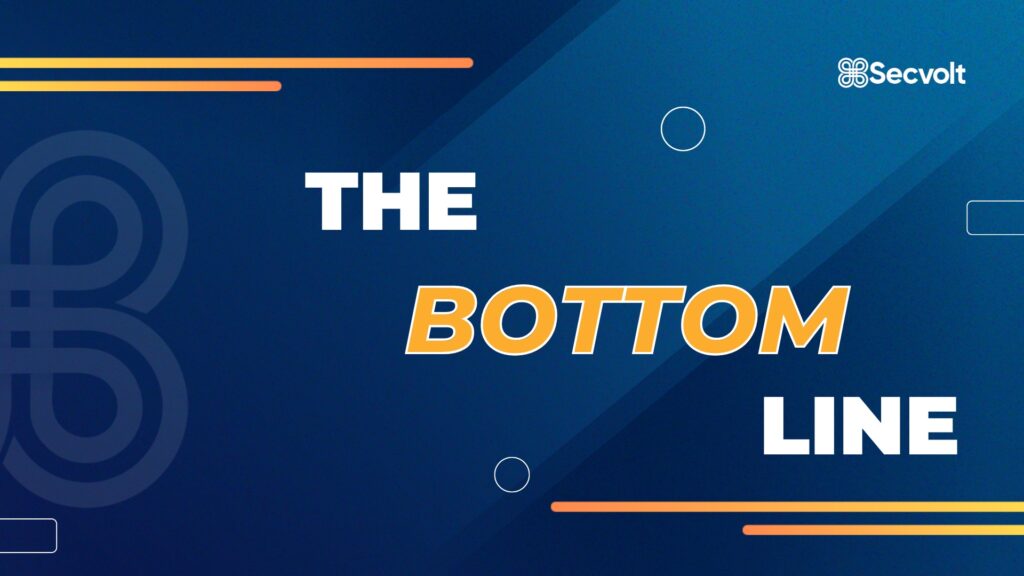
10 Mistakes To Avoid When Choosing A Hedge Fund
As a successful business owner, Anthony always managed his finances diligently. He had a diverse investment portfolio with a mix of many assets. But he wanted to explore the possibility of working with a hedge fund company to help maximize the potential returns on his investments. With this mindset, he started to look for different funds. However, he was terrified of the funds who had taken on too much risk and lost their clients’ money and others who were more interested in lining their own pockets than achieving the best results for their clients.

What can he do now?
When managing the investment portfolio, choosing the right hedge fund can make all the difference. This blog will delve into the top 10 mistakes to avoid when choosing a hedge fund. From failing to do your due diligence to overlooking key risk factors, we’ll help you steer clear of these common investing mistakes and increase your chances of finding the right fit for your investment goals. You can ask different business partnership questions to make an informed decision. So, join us as we explore the pitfalls to avoid when selecting a hedge fund.

Mistakes you should avoid when choosing a hedge fund
1. Not doing your due diligence
Before entering into business with a hedge fund, it’s essential to thoroughly research and evaluate their investment strategies and risk management practices. It’s also crucial to thoroughly research a hedge fund’s track record before deciding. This includes understanding their investment philosophy and approach, as well as reviewing their past performance and any relevant industry experience.
2. Failing to fully understand the fees associated with the hedge fund’s services
Make sure you fully understand the fees associated with a hedge fund’s services, including management and performance fees. These costs can significantly impact your returns, so it’s crucial to have a clear understanding before making a decision.
3. Not asking for references from current or past clients
Asking for references from current or past clients can give you valuable insight into the hedge fund’s capabilities and the level of service they provide. Don’t be afraid to reach out to these references and ask about their experiences.
4. Failing to align with your investment objectives
Before choosing a hedge fund management company, it’s essential to have a clear understanding of your investment goals and risk tolerance. This will help you determine the best fit for your portfolio and avoid making a decision that doesn’t align with your long-term objectives.
5. Not fully understanding the investment strategy
It’s essential to understand a hedge fund’s overall investment strategy and how they plan to generate returns. This will give you insight into their risk tolerance and how they approach the markets.
6. Failing to consider the risk management processes
Risk management is crucial for any investment, and it’s primary for you to know how hedge funds approach this aspect of their investment strategy. Make sure they have a solid plan in place to manage risk and protect your investments.
7. Not considering the communication style of the fund
Regular communication is important for any business partnership, and it’s no different when it comes to investing. Make sure the hedge fund has a clear plan for keeping you informed about your investment and any changes to the portfolio.
If you need some ideas about what to read next, here they are:
- How You Can Invest In The Crypto With Minimum Risk?
- Winter Begins With Everything Steamy In The Crypto World
- Can A New Hedge Fund Outclass The World’s Biggest Names?
8. Not thoroughly reviewing the offering documents
It’s essential to thoroughly review the hedge fund’s offering documents before making a decision. These documents will outline the terms of the investment, including fees, risks, and other relevant information.
9. Failing to consider the experience in the industry
Experience is crucial in any industry and significant when it comes to investing. Ensure that the hedge fund has a solid track record and a deep understanding of the markets.
10. Not considering the fund’s size and capacity
The size and capacity of a hedge fund can impact its performance and risk profile. A smaller fund may offer a higher level of personalization and attention, but it may also have less diversification and liquidity. On the other hand, a larger fund may have more resources and diversification, but it may also be less agile and responsive. So, invest your trust and capital in a place that can provide maximum profit for your portfolio.
Now you know what common errors in investment management you should avoid while deciding the fate of your wealth are. However, if you are unsure what questions to ask a fund while finalizing a deal, you can check the following section of the article.

What are the questions to ask a hedge fund?
Investment is a vast domain, and there are tons of questions you would not want to miss when your money is at stake. So, here are some questions divided into categories that can help you to make a confident decision while finalizing a fund and beginning a new journey.
Personal Questions:
It is vital to get to know the hedge fund personally before investing with them. This can help you gauge their communication style and overall approach to managing money.
- What is your background and experience in the industry?
It is important to understand the hedge fund’s experience and expertise in the industry.
- How do you keep up with industry developments?
Staying up-to-date on industry developments is essential for hedge funds, and it is worth asking how they stay informed about changes in the market.
- What is your decision-making process?
Knowing about the hedge fund’s decision-making process can provide insight into their level of transparency and communication with their investors.
- How do you involve your investors in the decision-making process?
Some hedge funds may involve their investors in decision-making, while others may operate more independently. Understanding this can help you gauge the level of involvement you can expect to have in your investment.
- How do you communicate with your investors?
Communication is an important aspect of the investor-manager relationship, and it is worth understanding the frequency and level of communication you can expect from the hedge fund.
Investment Questions:
It’s necessary to inquire about the specifics of the investment opportunity and the hedge fund’s investing approach, along with getting to know them personally.
- What is your investment philosophy and strategy?
It is essential to understand the hedge fund’s investing strategy, as this will inform their decision-making process and the types of investments they are likely to make.
- How do you assess risk?
It is important to understand the hedge fund’s approach to risk management and how they identify and mitigate potential risks in their portfolio.
- What is your track record?
A hedge fund’s track record can provide insight into its performance and the success of its investment strategies.
- What is your process for selecting investments?
Understanding the process the hedge fund uses to select investments can help you know their level of due diligence and how they make informed decisions.
- How do you diversify your portfolio?
Diversification is an essential aspect of risk management, and it is crucial to understand how the hedge fund approaches this in its portfolio.
Financial Questions:
In addition to being acquainted with the hedge fund and comprehending the investment opportunity to avoid investor mistakes, it is necessary to inquire about the financial aspects of investing in the hedge fund.
- What are the fees associated with investing with your hedge fund?
Understanding the fees involved in investing with a hedge fund is essential since they have a big influence on your overall returns.
- How do you charge performance fees?
Performance fees are a common aspect of hedge fund investing, and it is important to understand how these are calculated and when they are triggered.
- What is the minimum investment required?
You can determine whether the investment is feasible for you by knowing the minimum amount necessary to invest with a hedge fund.
- What is the expected return on investment?
It is crucial to have realistic expectations of the potential return on your investment, and it is worthwhile to ask about these expectations with the hedge fund.
- How do you handle redemptions?
It’s important to know the procedure for cashing out your investment in a hedge fund, as well as any prospective restrictions or fees that can apply.
Before making an investment decision, it is significant to conduct a thorough research about the hedge fund and the investment opportunity. Prior to investing, it is also a good idea to consult a financial expert or attorney.

The Bottom Line
Through Anthony’s story, you learned what trading mistakes to avoid while investing with a hedge fund. These questions will save you from falling into a trap that can snatch all the dreams of creating generational wealth. Pull out from a deal where the fund couldn’t respond to any of these questions.
However, some hedge funds are transparent about their policies and strategy, and Secvolt is one of them. It is a quant hedge fund that has been outperforming the market since its inception. It generated a cumulative YTD of 228.71% till November. But don’t believe whatever you read. Complete your due diligence by checking all the details on www.secvolt.com and avoid the common trading mistakes that people primarily make.





